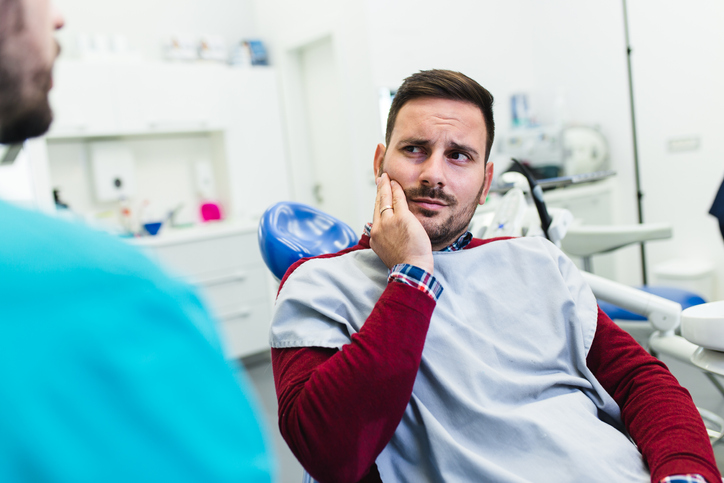
How much do you know about oral cancer? Oral cancers make up about 85 percent of a group of cancers referred to as head and neck cancer and affect about 53,000 Americans annually. Oral or oropharyngeal cancer is very serious, causing over 9.7050 deaths each year. How can you protect yourself against oral cancer? It helps to understand the causes of oral cancer so that you can learn how to reduce your risk.
Oral cancer begins in the mouth, or oral cavity, which includes the lips, the inside lining of the lips and cheeks, the teeth, the gums, most of the tongue, the roof of the mouth, and the bottom of the mouth. It can also develop in the oropharynx, the part of the throat that’s just behind the moth. When this is the location where cancer occurs, it’s called oropharyngeal cancer, and can affect the back of the tongue, the back of the roof of the mouth, the tonsils, and the upper throat.
There are several risk factors that come into play with oral cancer. Two-thirds of people with oral cancer are over age 55, and men are twice as likely to get it as women are. Some genetic mutations cause different syndromes in the body and raise the risk of oral cancer. These mutations include Fanconi anemia and dyskeratosis congenital, a genetically linked syndrome that also causes aplastic anemia. Graft vs host disease increases your risk of oral cancer, as does taking immune-suppressing medications. These factors may be beyond your control, but there are steps you can take to reduce other risk factors.
- Ultraviolet light: People who work outdoors, visit tanning beds, or have prolonged exposure to the sun are more likely to develop cancers of the lip. Using lip balm with an SPF of 30 or higher can help protect you, but it’s also smart to limit your sun exposure and avoid spending time in the sun between 10 a.m. and 4 p.m. when the sun is at its strongest.
- Nutrition: Research has shown a link between a diet that’s low in fruits and vegetables and an increase in the risk of oral cancer. Eating a diet full of nutrient-dense foods can help reduce your risk.
- Tobacco: Around 80 percent of people who have oral cancers are tobacco users. The level of risk depends on the frequency and duration of tobacco use, and different types of tobacco affect different parts of the mouth. Smoking can cause cancer of the mouth or throat, while oral tobacco products like chewing tobacco and snuff can lead to cancer in the cheeks, gums, and inner surface of the lips. If you don’t smoke or chew tobacco, don’t start. If you do smoke, ask your doctor if you need help quitting.
- Alcohol: Heavy drinkers make up about 70 percent of people who are diagnosed with oral cancer. For people who smoke and drink heavily, the risk of oral cancer can be as high as 100 percent more than the risk for people who don’t drink or smoke. To reduce your risk, limit your alcohol consumption to no more than one or two drinks per day.
A healthy lifestyle can help reduce your risk of oral cancer, and so can regular dental checkups. At your appointment at University Associates in Dentistry, ask your dentist to check your mouth for signs of dental cancer, and to discuss your risk. You can make a dentist appointment in Chicago by calling (312) 704-5511, or visit our website for more information or to set up a complimentary consultation.



